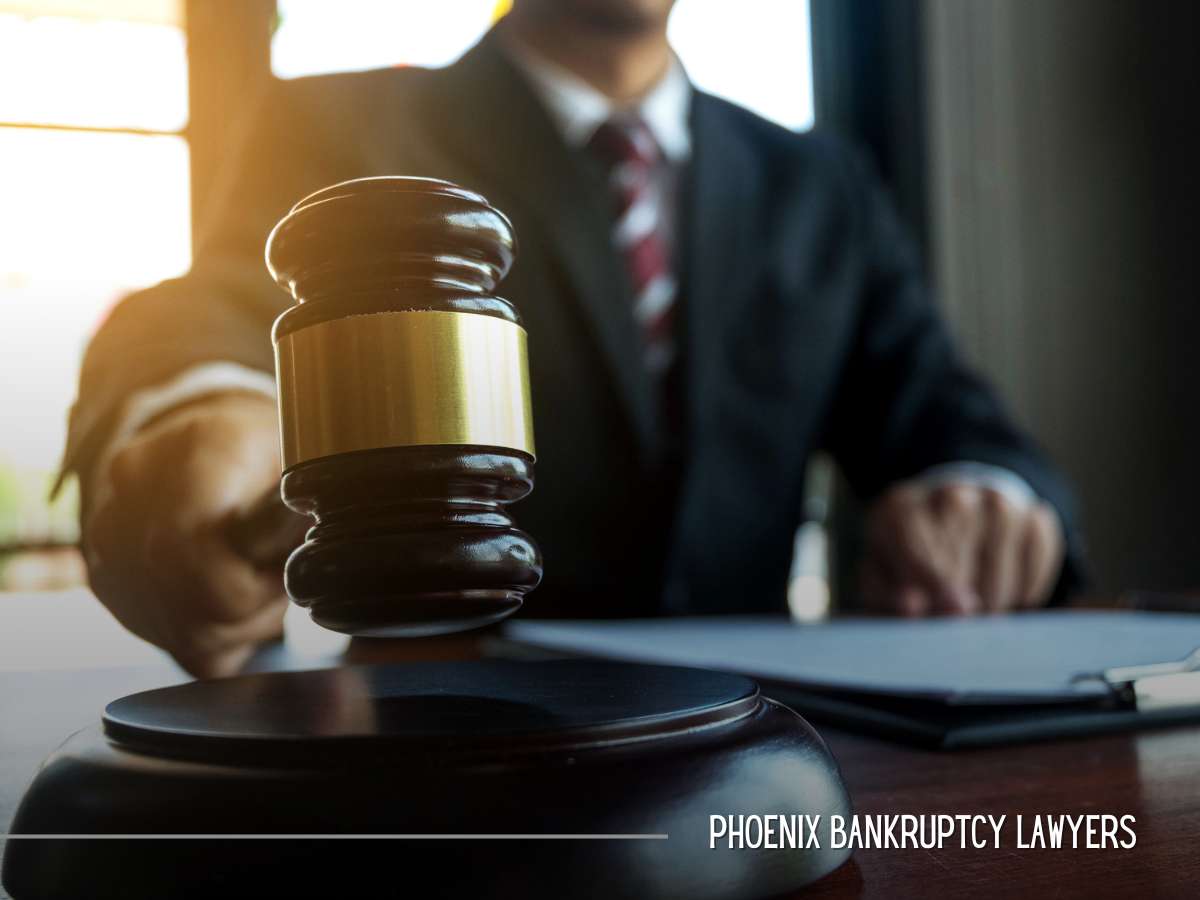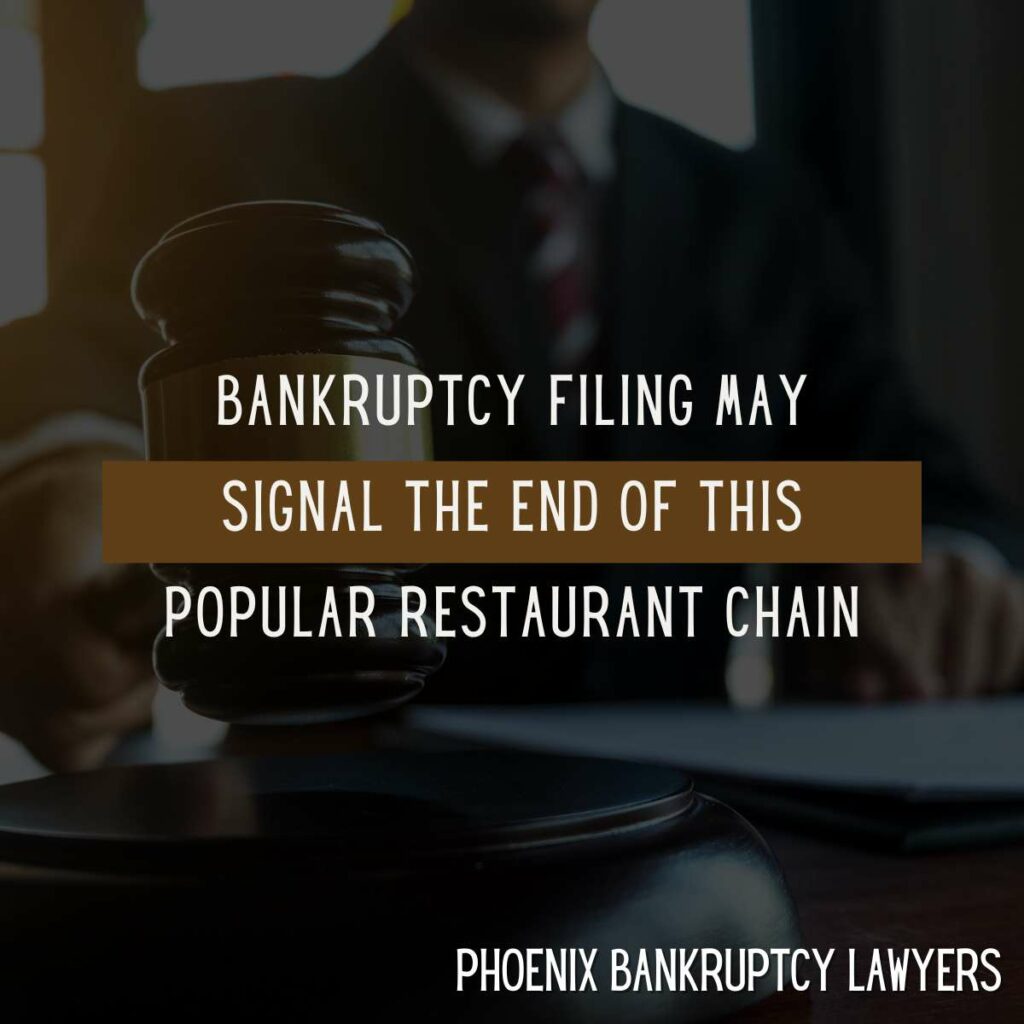Boston Market has long been an affordable chain restaurant that families can rely on for a convenient meal, especially if they like rotisserie chicken. However, the chain’s owner, Jay Pandya, filed a personal bankruptcy in the state of Pennsylvania on December 8, 2023. Pandya’s filing comes in the wake of numerous lawsuits from a variety of creditors. Vendors and franchisors are pursuing him for unpaid bills, and employees are pursuing him for unpaid wages. This can quickly become a business owner’s worst nightmare, especially with a company that has seen falling profits in recent years. Personal bankruptcy can shield Pandya from his creditors, who will need a motion for relief from the automatic stay if they wish to continue with a lawsuit while his bankruptcy is in good standing. Unfortunately, Boston Market’s story shows that people have less disposable income available for dining and this could result in many people losing their jobs. Personal bankruptcy can shield you from creditors and clear debts that you can’t afford to pay. To learn more about bankruptcy in Arizona, call 602-509-0955.

How Boston Market Ended Up Here
This filing is only part of a long period of financial struggles for Boston Market. Pandya came to own Boston Market when his company, Engage Brands (under the Rohan Group of Companies) purchased it in 2020. Pandya also owns Yum Brands, which owns fast food companies like KFC, Pizza Hut, and Taco Bell. Yum Brands also used to own Long John Silver’s and A&W Restaurants. Pandya as an individual is a huge player in the fast food industry. But Engage Brands originally acquired Boston Market while it was in the midst of financial struggles and Yum Brands declared bankruptcy during the pandemic.
Boston Market’s legal and financial woes may have irreparably damaged its reputation as a business. In May 2023, Boston Market’s Denver headquarters were seized by local authorities. This seizure also included three restaurant locations in Aurora, Colorado. A distraint warrant, which allows the Department of Revenue to seize business assets and change the locks on the doors, was issued due to Boston Market’s back taxes and unpaid wages. The amount owed was reportedly about $300,000. They were able to settle the balance and reopen their Colorado doors. Just a few months later, Boston Market faced a similar issue in New Jersey. In August 2023, 27 Boston Market locations in New Jersey were shut down due to the chain’s failure to pay $630,000 in wages to 314 employees. The total unpaid wages, fines, and other fees came out to approximately $2.5 million. Over the past few years, Boston Market has closed several hundred locations and not opened any new ones. While Pandya’s bankruptcy is a personal one, his control over the company affects many people. It will be up to the court to decide, through his bankruptcy, if keeping Boston Market in business will be in the creditors’ best interests.
Examples of Successful Restaurant Bankruptcy Cases
Most businesses either file for Chapter 11 bankruptcy or Chapter 7 bankruptcy. Chapter 11 bankruptcy can be used to reformulate a business, emerge, and continue operating, or shut down. Chapter 7 bankruptcy only offers business debtors the choice to shut down. Many restaurants have used bankruptcy to deal with debts and creditors, with many of them being forced to do so due to the pandemic. Examples of restaurants that have previously declared bankruptcy include:
- Chuck E. Cheese
- California Pizza Kitchen
- Sizzler
- Souplantation/Sweet Tomatoes
- Ruby Tuesday
- Bar Louie
- Rubio’s
- Cici’s Pizza
Personal Bankruptcy & Protection from Creditors
For the average person, filing for bankruptcy will be much simpler than the case of someone who owns Boston Market and other restaurant chains. But whether you file for Chapter 7 bankruptcy, Chapter 13 bankruptcy, or even Chapter 11 bankruptcy, it will activate the automatic stay. The automatic stay protects bankruptcy debtors from their creditors in a plethora of ways.
Filing for bankruptcy can stop a creditor from filing a lawsuit and put one that has already been filed on hold. If the creditor has already obtained a money judgment against the debtor, it might qualify to be cleared by a bankruptcy filing. A creditor could use that money judgment to pursue a wage garnishment or bank account levy against the debtor, which will also be stopped by the automatic stay. The automatic stay also stops repossession and foreclosures. If you are concerned about an action a creditor may take against you and want to learn if bankruptcy will help, call 602-509-0955 for your free phone consultation.
How to Choose Which Chapter to File
There are different chapters of bankruptcy to suit different debt relief needs. Most of the time, individuals will be best off using Chapter 7 or Chapter 13. Chapter 11 can be an expensive and complicated ordeal and generally requires significant involvement from creditors in the form of a creditor committee. Small businesses can bypass the creditor committee through a small business or subchapter V filing.
A major factor in the choice between Chapter 7 and Chapter 13 is income eligibility. Chapter 7 is the most commonly filed form of consumer bankruptcy but has strict income limits. A debtor whose household income exceeds the state median for their family size will need to qualify for Chapter 7 bankruptcy through the means test. Because Chapter 13 pays off debts in a payment plan, debtors can have a higher income and still qualify where they might not qualify for Chapter 7. It also allows debtors to keep assets that might not be protected by bankruptcy exemptions in Chapter 7.
When you’re behind on the payments for a secured asset (like your house or car) that you wish to keep, chapter 7 bankruptcy might not be as useful to you as Chapter 13. Chapter 7 bankruptcy will only stop a repossession or foreclosure for a few months if the debtor can’t become current on their past-due balance. Chapter 13 can make it more affordable by essentially spreading that amount out over several years. A creditor will usually have no cause to proceed with a foreclosure or repossession after the successful completion of a Chapter 13 bankruptcy.
Countless factors can impact which type of bankruptcy will be more effective in your situation. Our skilled Arizona bankruptcy lawyers can walk you through them, free of charge, with your initial phone consultation. To schedule yours today, call 602-509-0955.
Arizona Bankruptcy Lawyers with High-Quality and Caring Service
A bankruptcy filing from someone like the owner of Boston Market shows that unmanageable debt can happen to anyone. Skillful bankruptcy representation can clarify the process and reduce the risk of obstacles and delays. An accurate bankruptcy filed in compliance with Arizona and federal bankruptcy law will result in a less stressful overall experience. Our bankruptcy attorneys have years of experience representing clients all across the valley and in Tucson. We offer flexible payment plans and you may even qualify to file for zero dollars down. To learn more about the services we offer at Phoenix Bankruptcy Lawyers, call 602-509-0955 to schedule your free consultation.
Phoenix Bankruptcy Lawyers
668 N. 44th St. Set 320
Phoenix, Arizona 85008
Phone: (602) 509-0955
